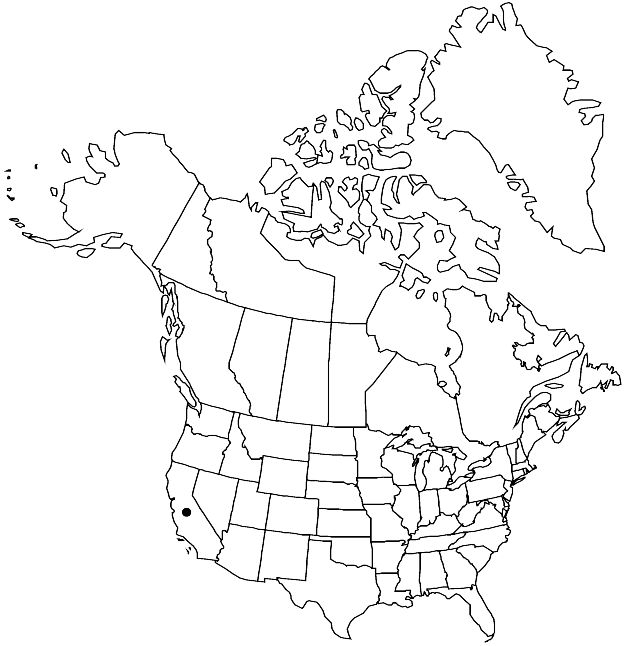Gemmabryum gemmiferum
Phytologia 89: 111. 2007.
Plants green or yellow-green. Stems 0.5–1(–2) cm, gemmiform to evenly foliate. Leaves ovate, strongly concave, 0.5–1.5(–2) mm; margins plane to revolute proximally; apex acute to acuminate; costa percurrent to rarely short-excurrent; proximal laminal cells abruptly quadrate to short-rectangular, 1–2:1; medial and distal cells 8–16(–20) µm wide, 3–4:1. Specialized asexual reproduction by leaf axil bulbils, bulbils (2–)5–25 per axil, cylindric to pyriform, 150–250 µm, primordia distinct, narrow, acute to peglike, arising from distal 1/3–1/4 of bulbil. Capsule nutant, purple-red at maturity, 1–2(–3) mm; hypophysis somewhat thickened, not distinctly inflated, not or weakly rugose; peristome well developed; endostome not adherent to exostome, basal membrane high, segments well developed, perforations ovate, cilia long, appendiculate.
Habitat: Damp soil, clearings, fields
Elevation: low to moderate elevations (0-500 m)
Distribution

Calif., w, s Europe, Atlantic Islands (Canary Islands).
Discussion
Gemmabryum gemmiferum is a distinctive Mediterranean climate species. Typically it is found on disturbed soil that dries out following winter rains, often in association with ephemeral bryophytes. It differs from G. dichotomum and G. gemmilucens in bulbil features. The bulbils are orange to red when mature. In California this species is known from San Mateo and Santa Cruz counties.
Selected References
None.